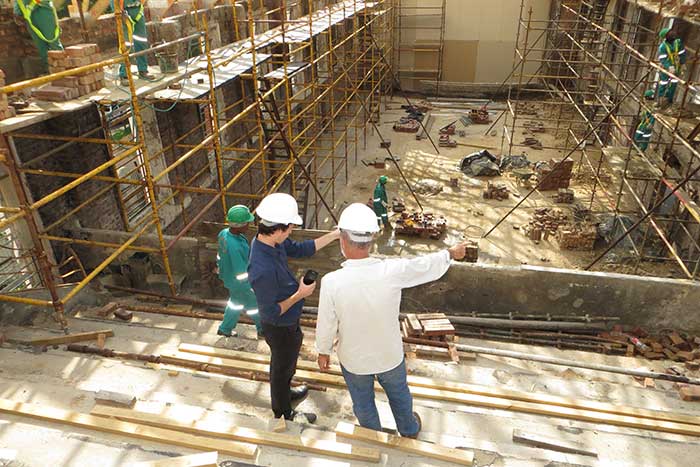We can’t live without many things. Electricity is one of them. We all benefit from the various things it brings and owners of construction plants, properties, and businesses all have a duty towards safety and legal compliance.

That compliance is required, but it doesn’t make fixed-wired electrical testing a simple grumble you tick off your checklist; there’s real opportunity to improve your bottom-line off it.
Why you need a testing schedule.
Let’s cover the key reasons why you need a reliable, consistent schedule for your testing.
Contact is dangerous: Physical contact with electricity is a source of risk and is dangerous to humans and animals.
Kit deteriorates: Faults tend to arise in electrical equipment and wiring through the deterioration of the item or wiring in question. This is a leading reason for malfunctions and danger.
Overloads: Overloading of equipment can cause anything from deactivation to a mild burn or more serious fire. Typically, overloads are avoidable and occur due to the presence and use – or overuse – of faulty equipment and wiring.
Minimize unplanned events: The closer you can consistently run to a schedule, the more your business can streamline itself around that schedule. This is an important journey that will see you save significant amounts of money as you hone your company.
Tailoring a plan is possible and valuable.
What many construction professionals and business owners don’t realize is they can adjust their testing schedules to suit their needs and restrictions better. It’s a simple affair to work with whoever is providing your electrical inspections and to work with them to create a schedule that is frequent enough to cover everything it needs to as often as it must.
With the testing requirements for equipment and wiring varying from anything from six months to five years (this changes depending on the type of area and equipment), it’s easy enough to put together a schedule that sees the bulk of your testing done in downtime. That, of course, makes a major difference to your bottom line in terms of lost production and customer confidence.
Cover your compliance.
You’ll be taking care of significant compliance requirements by ensuring you’ve got a solid testing plan in place. There are two key laws that relate strongly to electrical testing and equipment usage and it’s a statutory obligation for you to meet these by providing a place of work that is safe.
The Health and Safety at Work Act of 1974 contains a number of Regulations within it. Most relevant and important in this context is the Electricity at Work Regulations of 1989. What do these do? Simple, slightly: they govern the safe usage, installation, and maintenance of electrical equipment and wiring.
If you don’t follow these compliance requirements, it’s all on you; you could be prosecuted, fined, or imprisoned – not to say responsible for staff or visitors injured in an incident.
A worthy bonus.
Lastly, you can get great recommendations from an electrical professional while your premise is being tested. Particularly relevant for construction companies and properties that usually consume a lot of energy, the adjustment of electrical wiring and equipment and the purchase of energy-saving alternatives can transform into drastic savings over time.
By being proactive about your fixed wire electrical testing, you can transform a compliance requirement into a competitive edge that will help push your company forward and into growth. It’s easy to do, readily tailored to your needs, and can help your bottom line. Not a bad value proposition when all is said and done, if you ask us!
